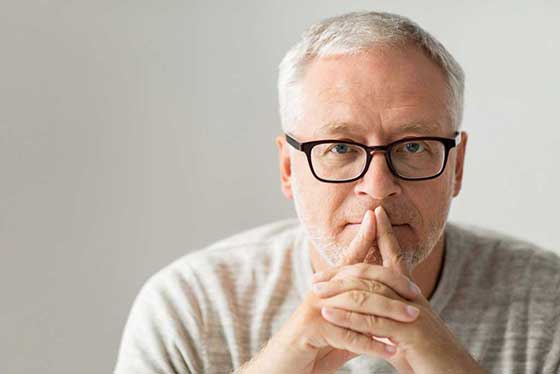How to Choose The Right Alternative Medicine

We all know that feeling when it’s time to choose a long-term doctor and the struggles that go along with this decision. Trust, dependency, education, intelligence and reliability are all things that each and every one of us look into when choosing a regular doctor to monitor your or your family’s long-term health. What about when you are looking for a non-conventional method and need help on choosing the right alternative medicine treatment that your primary doctor has yet to recommend to you? Alternative Medicine and treatment plans are strategically crafted to provide relief to your own personal problems or difficulties. These treatments are diverse and have recorded results dating back thousands of years, so why isn’t it more widely accepted?
The human being is hardly linear. There are many facets that are part of it that can get out of balance, triggering a myriad of manifestations whether physical, emotional or even behavioral. What most people don’t see is how conventional medicine, and alternative medicine could work hand in hand together. This is why health professionals include Complementary in the official name of C.A.M or “Complementary and Alternative Medicine” as a catch-all name. Some of the more common treatment options can include things like Acupuncture, Homeopathy, Massage Therapy, Traditional Chinese Medicine, and many others.
Still, today, most people suffering from common illnesses or pains only turn to this kind of approach after traditional therapies and pain management treatments have failed. This is largely due to the stigma that present medicine practitioners have said are largely non-effective. This is far from the truth.
Types of Complementary & Alternative Medicine Treatments
There are many methods of alternative medicine options out there today that focus on improving life for those who have just about any illness or imbalance. Most of the time holistic methods are combined with traditional therapy or conventional medicine that is given to you by your primary care physician. Just be sure to let them know you are interested in exploring these types of options and they will help you choose the right alternative medicine treatment. The practice of alternative medicine treatments are being used by as much as 40% of American Adults according to the National Institute Of Health. While there is no standard way of classifying all the treatments available, at Koshas, we group them as follows:
Whole Medical Systems
Whole Medical Systems are built upon beliefs and theories that have evolved earlier than conventional medicine. These systems typically use a variety of treatments or methods that fall under the Alternative Medicine umbrella and they are different from each other in the set of beliefs they are based upon. Examples include:
- Homeopathy, which seeks to stimulate the body’s defense mechanisms by giving very small doses of tailored substances.
- Naturopathy, which focuses on supporting health rather than combating disease. It is based on a number of principles that go from focusing on prevention to treating the whole person.
- Traditional Chinese Medicine, which is based on the concept that disease results from disruption in the flow of qi, vital energy and imbalance in the forces of yin and yang.
- Ayurveda, which aims to integrate the body, mind and spirit; thus, many view it as one of the most holistic practices.
Biologically-based Practices
It refers to substances found in nature, including herbs, foods and vitamins. These substances fall broadly under the category of diet and dietary supplements. Some of these treatments include:
- Diet therapy
- Herbal medicine
- Chelation therapy
Body Practices
These practices are based on the concept of touch. Touch has been used in medicine since the early days of medical care is based on the idea that illness in one area of the body can affect all parts of the body. If, with manual manipulation, other parts can be brought back to optimum health, the body can focus on healing at the site of injury or illness. Some of these treatments include:
- Massage
- Chiropractic
- Reflexology
These practices are based on the concept of touch. Touch has been used in medicine since the early days of medical care is based on the idea that illness in one area of the body can affect all parts of the body. If, with manual manipulation, other parts can be brought back to optimum health, the body can focus on healing at the site of injury or illness. Some of these treatments include:
Mind Treatments
Treatments and practices that focus on the interactions among the brain, mind, body and behavior, with the goal to improve mental and emotional health and well-being. Studies show that increased emotional and mental stability can significantly increase the body’s healing power and significantly lower one’s stress levels. This means that improving your positive thinking also improves your body’s healing. These practices include:
- Meditation
- Hypnotherapy
- Biofeedback
- Counseling
Energy Practices
The underlying theory behind energy therapies involves energy blockages or imbalances that lead to illness and disease. The intent of energy therapies is to restore the balance or energy to the biofield, thus promoting health and healing. Examples include:
- Acupuncture
- Reiki
- Therapeutic touch
Spiritual Practices
These practices help people identify and connect with their own purpose, hence increasing an overall . There are many different practices that help people achieve this and they include: Acupuncture
- Astral charts
- Astrology readings
- Numerology
Once you’ve identified the types of treatment options you wish to explore, and you’ve discussed this with your primary doctor, the next challenge is finding the right provider to recommend and actually perform your chosen treatment or therapy.
Traditional healthcare providers have been slow to adopt alternative medical treatments, although their reasoning for not recommending alternative treatments and holistic approaches to pain and disease is lackluster, current trends into holistic medicine are forcing those to reassess their opinions and recommendations. At Koshas, we want to simplify this process for you and provide you with relevant content, resources and technology to make your journey easier, accessible and personalized.


Leave a Reply
You must be logged in to post a comment.